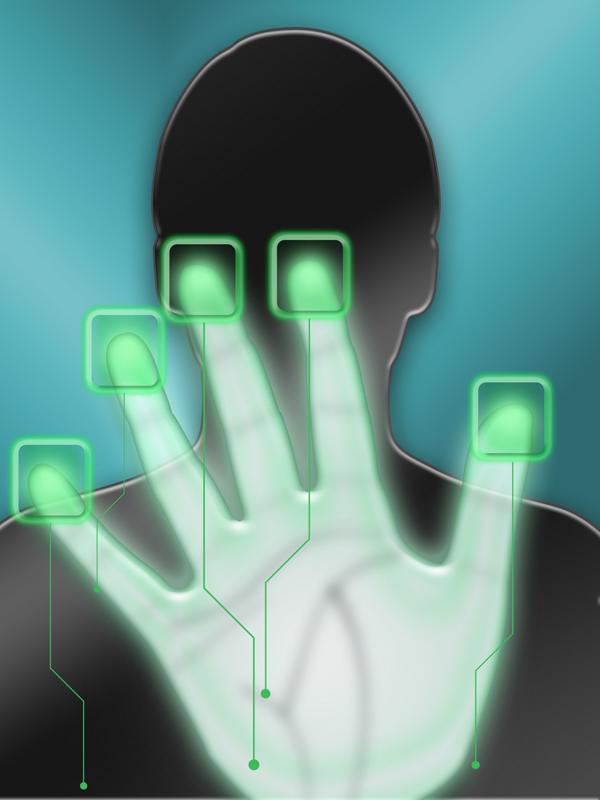Biometric security is growing as a trend in the technology industry. Fingerprint scans, in particular, are now widely used with mobile payment programs like Apple Pay and Samsung Pay. However, that is just one of many uses for the technology. Government agencies, financial institutions and data centers use biometric scans to safeguard their data and ensure that access to sensitive information is only granted to authorized individuals. There are many reasons why biometric technology is beneficial, especially since it represents an evolution in the way people secure their data.
A cutting edge technology
One of the reasons biometric technology is an effective way to secure confidential or sensitive information is because it is based on things that are not easily replicated. Each person's face, iris and fingerprint is unique, so using these things to authenticate access makes sense. Fingerprint scans are the most prevalent today and are used in multiple ways. From mobile payment programs and bank vaults, to data centers and government offices, fingerprint scans offer a way to keep intruders and unauthorized individuals out, by having an impenetrable line of defense. TechZone360 pointed out that airports, like Miami International, have started using biometric fingerprint data at their passport control desks, which speaks to the ubiquity of the technology.
"It is much harder to steal a fingerprint than to steal a password."
Biometrics are stronger than passwords and keys
It is much harder to steal a fingerprint or an iris than it is to steal a password. There are many ways that hackers are able to gain access to passwords. A hacker can sometimes guess what a person's password is based on personal information like a child's name or birthday. Sometimes hackers send phishing emails to unsuspecting people and coerce the information out of them. Other times hackers can simply look over a person's shoulder to learn their password. With fingerprint scans, these things are not possible. It is near impossible for a hacker to crack a 16-character key – replicating a fingerprint is considerably more difficult than that.
Fingerprint scans can help guards workflow processes
Today, security is one concern, but compliance is another major one. Mike DuBose, a former Justice Department official explained that unauthorized insider access is often the most common form of security breach.
"But amidst all the concern and discussion over foreign hacking, what gets lost is the fact that the vast majority of serious breaches involving trade secrets or other proprietary or classified information are still being committed by insiders," said DuBose, according to the National Journal.
As such, it is important for organizations to protect themselves from the inside just as much as the outside. Having the strongest network security and firewall doesn't do much if a malicious employee can simply walk over to a server room, stick a USB into the slot and steal sensitive information. Also, sometimes these events are a mistake. If an organization does not clearly define its workflow processes and designate who is authorized to sign off on specified elements, then they open themselves up to the possibility of serious data corruption. Tech companies need to guard proprietary information, health care companies need to make sure pharmaceutical testing is done according to regulation and, in the finance sector, firms need to protect client account information. TechZone360 mentioned that health care companies especially benefit from biometric security in the areas of patient verification and research data access. Biometric scans offer a practical way to not only limit access to outsiders, but limit access to unauthorized insiders as well.

Countless companies and organizations use biometric security
If biometric security was not effective, it would not be used by governmental agencies and tech companies alike. The most obvious example is that Apple iPhone's Touch ID. A recent press release noted that by 2021, onboard fingerprint readers in mobile devices will exceed 1 billion units a year, representing 34 percent of all smartphone and tablet shipments around the world
ABI Research estimated that in 2015, revenues for the biometric markets will amount to $13.8 billion, reported TechZone360.
Iris and brain scans are coming soon
According to TechWorm, Blair Armstrong, postdoctoral researcher from the Basque Center on cognition, brain and language , used the brain signals of 45 people to determine that brain reactions are diverse enough for a computer system to differentiate identities, with accuracy of up to 94 percent. While brain scans may hold promise for the future, the technology still needs to be refined further. Regardless, developments such as this prove that biometrics will more than likely be very important in coming years. Kevin Bowyer, a professor at the University of Notre Dame, said Armstrong's work "stretches the boundaries of how we think about biometrics."
Ultimately, for companies looking for stronger ways of protecting their data, biometric fingerprint scans are a good place to start. Protect your server room from intruders and guard your workflow processes with cutting-edge technology. There are too many benefits to ignore.